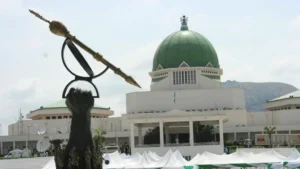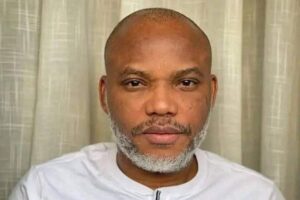
The Nigerian government has imposed a seven-year ban on the establishment of new federal tertiary educational institutions.
The Minister of Education, Tunji Alausa, said the proposal was approved at the Federal Executive Council (FEC) presided over by President Bola Tinubu on Wednesday.
Mr Alausa said the decision was to halt decays in Nigerian tertiary institutions.
He explained that the current challenge in Nigeria’s education sector is no longer about access to federal tertiary education but about addressing the proliferation which has strained resources, leading to the deterioration of infrastructure.
“We are doing this to further halt decays in tertiary institutions which may in the future affect the quality of education and consequently cause unemployment of graduates from some of these institutions,” he said.
Mr Alausa had directed the Tertiary Education Trustfund (TETFund), an intervention agency for Nigerian tertiary institutions, to only use its 2025 funding for the rehabilitation of existing infrastructures and not the construction of new ones.
In an editorial in March, PREMIUM TIMES also asked Mr Tinubu’s government to halt the proliferation of universities and address the funding challenges so they can attract world-class faculty and international students.
This newspaper noted that the country cannot continue to have universities that have no well-equipped laboratories, libraries, students’ hostels, lecture halls, water, electricity, sufficient academic manpower, or research capacities.
“The penchant for unrestrained establishment of universities in the country, despite the decrepit state of existing ones, as a result of gross underfunding, is highly counterproductive,” this newspaper said.
Nigerian institutions struggle over lack of funding
It had reported how the Nigerian government continued to establish new universities, polytechnics and colleges of education even though the existing ones struggle to access funding from the federal government.
In less than two years in office, Mr Tinubu –who initially postponed the take-off of some federal universities approved by his predecessor, the late Muhammadu Buhari over funding concerns– went ahead to establish more than 12 tertiary institutions, including eight universities, two polytechnics and two colleges of education.
Meanwhile, there are over 200 bills seeking to establish more universities in the National Assembly, Mr Alausa, the education minister said in March.
The funding-deficit in Nigerian tertiary institutions has resulted in most of the institutions, particularly the universities, hiking school fees, some of them by more than 100 per cent.
The situation has also constantly pitted workers in the institutions against the government, resulting in industrial actions that have characterised Nigerian tertiary institutions for more than two decades.
Just last week, the Academic Staff Union of Universities (ASUU), the largest lecturers’ union in the country, warned of an imminent strike over the government’s failure to conclude the renegotiation of the 2009 agreement, which is largely about the academics’ welfare.
The 2009 agreement, meant to be renegotiated every four years, has stalled since it was first signed.
Renegotiation efforts in 2013, 2017, 2020, 2021, and 2024 have stalled with successive governments failing to sign the draft agreement, further infuriating the lecturers.
ASUU said the last committee inaugurated in October 2024 and chaired by the Pro-Chancellor of the Ahmadu Bello University, Zaria, Yayale Ahmed, submitted its report eight months ago but the government is yet to sign or begin the implementation




![[PHOTOS] Offa LG Councillor, Prince Adegboye Adeniyi Festus Empowers Constituents, Donates Education and Health Materials](https://newsbulletin.com.ng/wp-content/uploads/2025/10/1760428832288-300x300.jpg)


